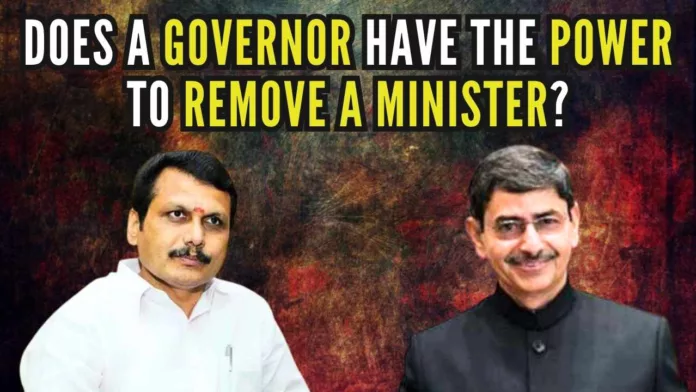
What the law says about the powers of a Governor
Ever since Tamil Nadu Governor R N Ravi paused the sacking of the Minister without Portfolio, V Senthil Balaji, a lot has been said and written. However, the arguments dished out are shallow and poorly researched. The answer to the question asked in the headline is an emphatic Yes. The law is settled as far as this is concerned and here is why:
Article 154:
- The executive power of the State shall be vested in the Governor and shall be exercised by him either directly or through officers subordinate to him in accordance with this Constitution.
- Nothing in this article shall —
(a) Be deemed to transfer to the Governor any functions conferred by any existing law on any other authority.
(b) Prevent Parliament or the Legislature of the State from conferring by law functions on any authority subordinate to the Governor.
163. Council of Ministers to aid and advise Governor
- There shall be a Council of Ministers with the Chief Minister at the head to aid and advise the Governor in the exercise of his functions, except in so far as he is by or under this constitution required to exercise his functions or any of them in his discretion.
- If any question arises whether any matter is or is not a matter as respects which the Governor is by or under this Constitution required to act in his discretion, the decision of the Governor in his discretion shall be final, and the validity of anything done by the Governor shall not be called in question on the ground that he ought or ought not to have acted in his discretion.
164. Other provisions for Ministers
- The Chief Minister shall be appointed by the Governor and the other ministers shall be appointed by the Governor on the advice of the Chief Minister, and the ministers shall hold office at the pleasure of the Governor.
What is the Doctrine of Pleasure:
The Doctrine Of Pleasure is a concept derived from English common law, under which the crown can dispense with the services of anyone in its employ at any time.
In India, Article 310 of the Constitution says every person in the defence or civil service of the Union holds office at the pleasure of the President, and every member of the civil service in the States holds office during the Doctrine Of Pleasure Governor.
In addition, there are several judgments that re-iterate the headline with a Yes.
Note:
1. Text in Blue points to additional data on the topic.
2. The views expressed here are those of the author and do not necessarily represent or reflect the views of PGurus.
PGurus is now on Telegram. Click here to join our channel and stay updated with all the latest news and views
For all the latest updates, download PGurus App.
- Does a Governor have the power to remove a minister? - June 30, 2023
- Desiyam Vs Dravidam - April 13, 2023










